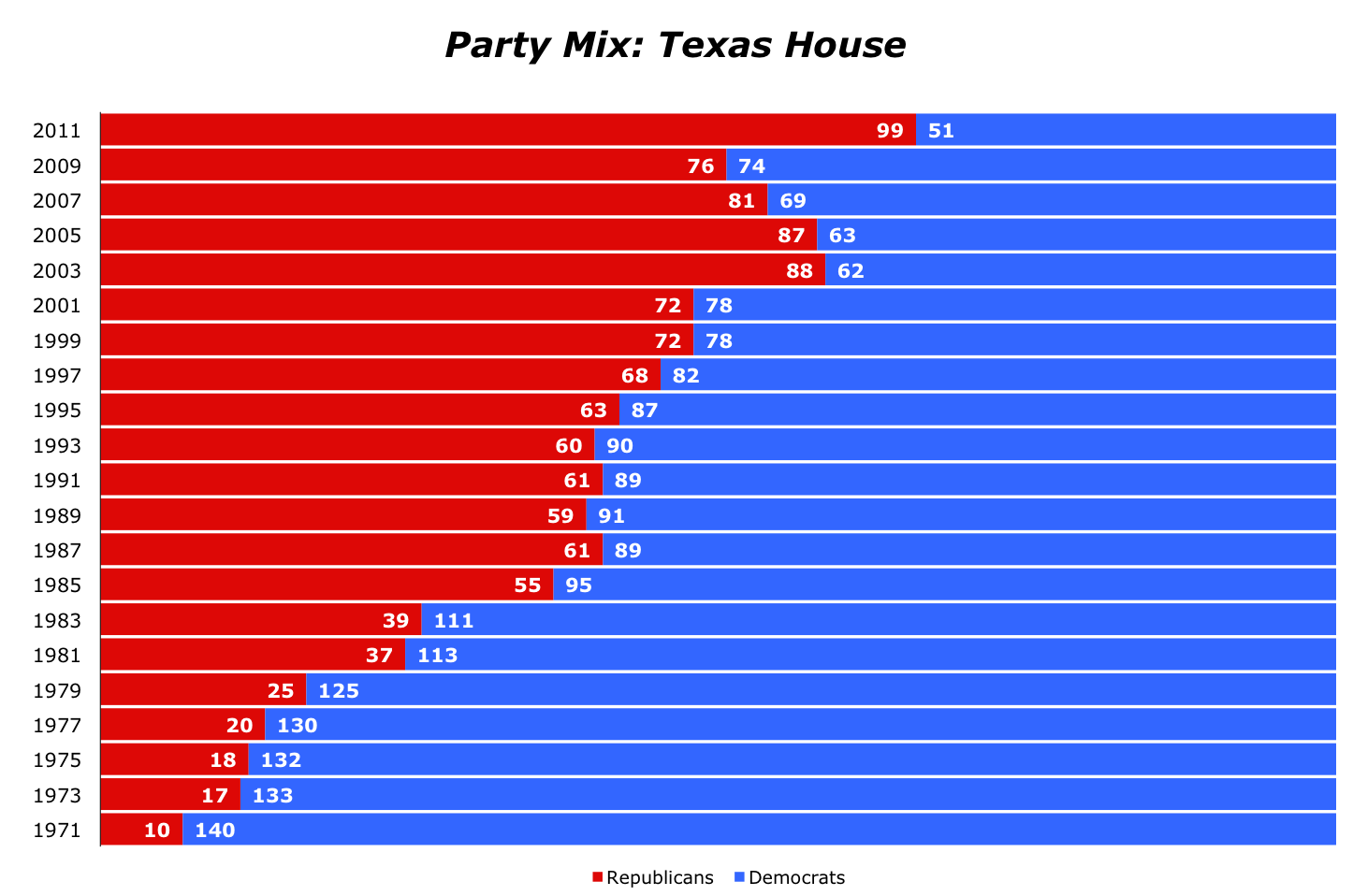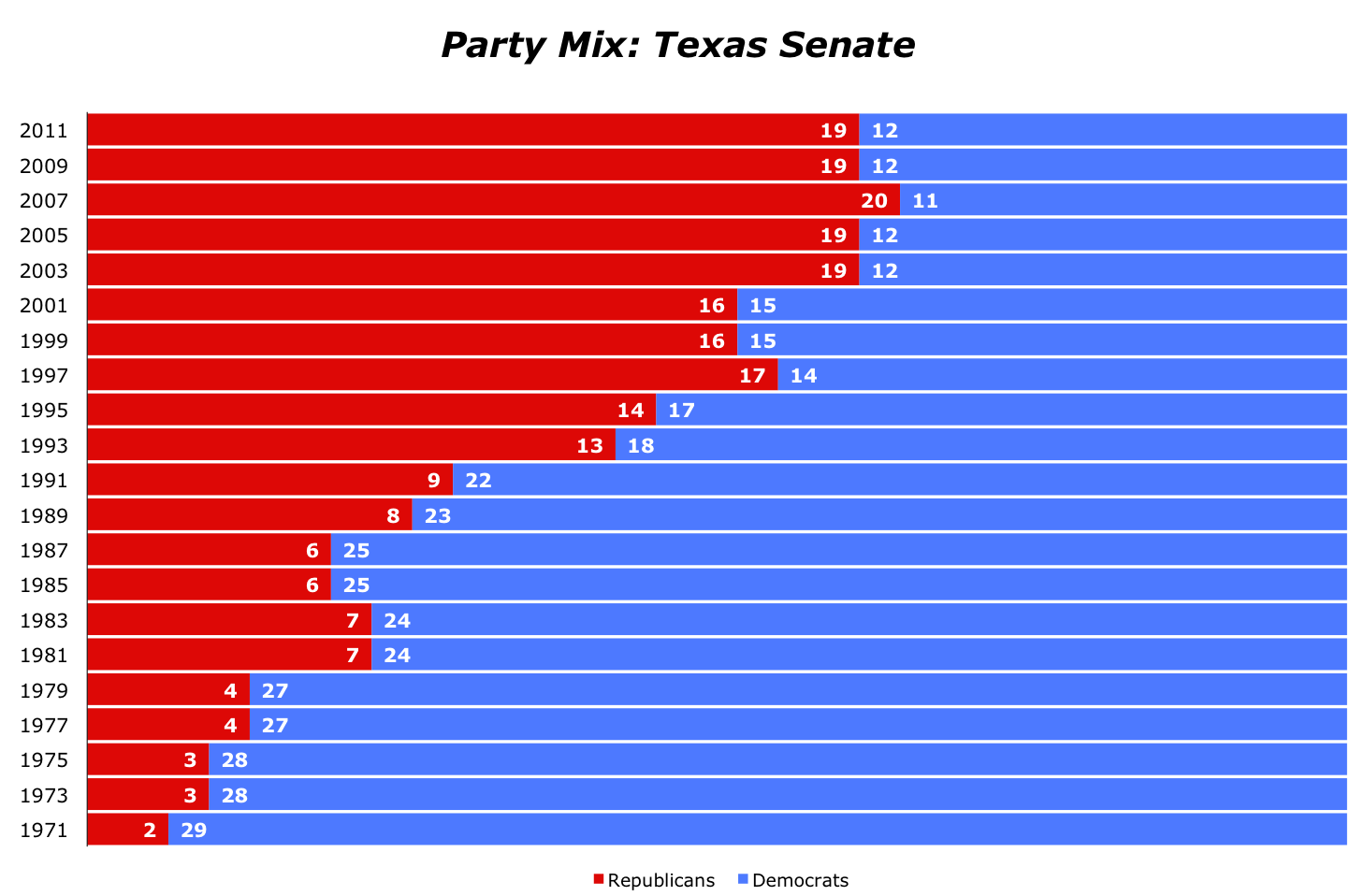The Texas House has 150 members, and all of them are on the ballot. But not all of them have races, and not all of those with races are in trouble. More than 60 percent of the people on the House ballot have either no opponent at all (63 of them), or no major-party opposition (30). The "practically elected" class includes 39 Democrats and 54 Republicans; 11 of them will be entering as freshmen. Some are unopposed: Democrats (32): Allan Ritter, Joe Deshotel, Ryan Guillen, Sergio Muñoz Jr.*, Rene Oliveira, Eddie Lucio III, Armando Martinez, Aaron Peña, Richard Raymond, Edmund Kuempel, Chente Quintanilla, Naomi Gonzalez*, Marisa Marquez, Tracy King, Mark Veasey, Eric Johnson, Rafael Anchia, Roberto Alonzo, Helen Giddings, Barbara Mallory Caraway, Yvonne Davis, Trey Martinez Fischer, Joe Farias, Ruth McClendon, Mike Villarreal, Alma Allen, Sylvester Turner, Armando Walle, Harold Dutton, Carol Alvarado, Borris Miles*, and Garnet Coleman. Republicans (31): Dan Flynn, Lance Gooden*, Bryan Hughes, Jim Pitts, Fred Brown, Lois Kolkhorst, Brandon Creighton, Mike "Tuffy" Hamilton, Dennis Bonnen, Geanie Morrison, Todd Hunter, Jimmy Don Aycock, Jim Keffer, Tan Parker, Van Taylor*, Jerry Madden, Rick Hardcastle, Ken Paxton, Drew Darby, Tryon Lewis, Tom Craddick, Charles Perry*, John Smithee, Warren Chisum, Jodie Laubenberg, Kelly Hancock, Vicki Truitt, Charlie Geren, Joe Straus, Wayne Smith, and Gary Elkins. Others have only minor-party opponents: Democrats (7): Ron Reynolds*, Jose Manuel Lozano*, Dawnna Dukes, Elliott Naishtat, Joe Pickett, Jose Menendez, and Joaquin Castro. Republicans (23): Leo Berman, David Simpson*, Rob Eissler, John Otto, Charles Schwertner*, Larry Taylor, Randy Weber, Harvey Hilderbran, Ralph Sheffield, Sid Miller, Phil King, Larry Phillips, Myra Crownover, Burt Solomons, Lanham Lyne*, Susan King, Doug Miller, Diane Patrick, Mark Shelton, Angie Chen Button, Jim Jackson, Allen Fletcher and Beverly Woolley. Those with asterisks are freshmen, and that group includes Van Taylor, who's already been sworn in to replace Brian McCall, and Borris Miles, who served one term, lost, and is now on his way back in.



